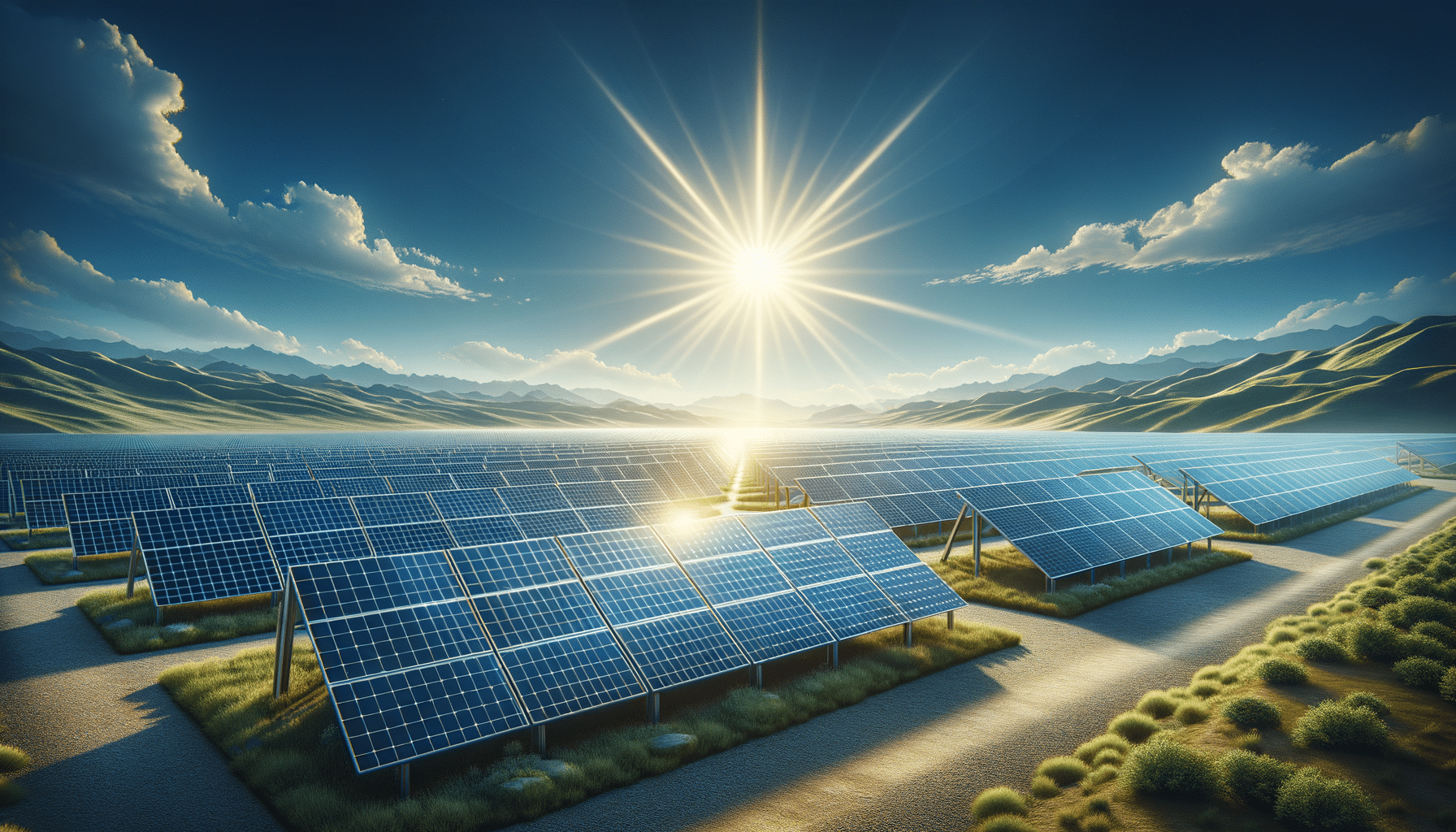
Harnessing the Power of Solar Panels: A Comprehensive Guide
Introduction to Solar Panels
In recent years, solar panels have become a pivotal component in the quest for sustainable energy solutions. As concerns over climate change and energy consumption grow, solar panels offer a renewable and environmentally friendly alternative to traditional energy sources. This article explores the various aspects of solar panels, from their basic functionality to their broader impact on society and the environment.
Understanding How Solar Panels Work
Solar panels, or photovoltaic (PV) panels, convert sunlight into electricity through the photovoltaic effect. This process involves semiconductor materials, typically silicon, which absorb photons from sunlight, releasing electrons and generating an electric current. The efficiency of a solar panel is determined by its ability to convert sunlight into usable energy, and advancements in technology continue to improve this efficiency.
Key components of a solar panel system include:
- Solar cells: The individual units that convert sunlight into electricity.
- Inverters: Devices that convert the direct current (DC) produced by solar cells into alternating current (AC) for home or business use.
- Mounting systems: Structures that hold the panels in place, either on rooftops or ground installations.
Understanding these components helps in appreciating the intricate technology behind solar panels and their potential to revolutionize energy consumption.
Benefits of Solar Panel Installation
Installing solar panels offers numerous benefits, both economically and environmentally. One of the most significant advantages is the reduction in electricity bills. By generating your own electricity, you can significantly decrease your reliance on grid power, leading to substantial savings over time.
Environmentally, solar panels contribute to a decrease in greenhouse gas emissions, as they produce clean energy without the harmful byproducts associated with fossil fuels. Additionally, solar energy is renewable, meaning it can be harnessed indefinitely without depleting natural resources.
Other benefits include:
- Increased property value: Homes with solar panels are often valued higher due to their energy efficiency.
- Energy independence: Solar panels provide a degree of self-sufficiency, reducing vulnerability to energy price fluctuations.
- Job creation: The solar industry has become a significant source of employment, with jobs ranging from manufacturing to installation and maintenance.
Challenges and Considerations
While the advantages of solar panels are compelling, there are challenges and considerations to keep in mind. Initial installation costs can be high, though prices have been decreasing as technology advances and demand increases. Additionally, the efficiency of solar panels can be affected by factors such as geographic location, weather conditions, and the angle of installation.
Another consideration is the space required for solar panels, particularly for large installations. Rooftop space may be limited, and ground installations require sufficient land area. Maintenance is also an important factor, as solar panels need regular cleaning and occasional repairs to ensure optimal performance.
Despite these challenges, the long-term benefits often outweigh the initial hurdles, making solar panels a viable option for many homeowners and businesses.
The Future of Solar Energy
The future of solar energy is promising, with ongoing research and development aimed at improving efficiency and reducing costs. Innovations such as bifacial solar panels, which capture sunlight on both sides, and solar tiles that blend seamlessly with traditional roofing materials, are expanding the possibilities for solar energy integration.
Government incentives and policies continue to support the growth of solar energy, with many countries setting ambitious targets for renewable energy adoption. As technology evolves and public awareness increases, solar panels are likely to play an increasingly important role in the global energy landscape.
The journey towards a sustainable future is paved with opportunities, and solar panels are at the forefront of this transformative movement.
Conclusion: Embracing Solar Energy
Solar panels represent a significant step forward in achieving sustainable energy solutions. By harnessing the power of the sun, we can reduce our carbon footprint, decrease energy costs, and pave the way for a cleaner, greener future. As technology continues to advance and awareness grows, solar panels will undoubtedly remain a key player in the transition to renewable energy.
For individuals and businesses alike, embracing solar energy is not just an investment in the present but a commitment to a sustainable future. The potential benefits are vast, and the impact on our planet is profound, making solar panels an essential component of modern energy strategies.


